It’s been more than two weeks since I attended the 5-day virtual UK Knowledge Mobilisation Forum 2021. I am still buzzing with excitement over the connections made, learning points gained from shared experiences and the varied engagement platforms utilised during this event. Without having to say much more, I’m sure you can tell I enjoyed myself!
If I’m honest, excitement wasn’t my first choice of word when I heard this year’s Forum would be held virtually. Call it a chronic case of the ’Zoom dreads’ from attending or enduring many non-engaging virtual sessions or events since COVID. This was my first attendance at the Forum and having heard of the fun and engaging in-person experiences provided in previous events, I didn’t know what to expect. I am a newly appointed Research Project Coordinator working with a team of established academics and industry specialists on a Knowledge Transfer Partnership (KTP) between the University of Huddersfield and Swiss Re (a reinsurance company). This #ktp project, part-funded by #innovateuk aims to embed research expertise from #huddersfielduni in developing and implementing an individual focused return to work support package in the early stages of sickness absence to aid recovery and reduce unnecessary work loss due to ill health. I recently completed my PhD on a similar subject, and I essentially occupy the unique role of being a knowledge mobiliser (KTP Associate) for this project – https://www.hud.ac.uk/news/2020/september/ktp-swiss-re-changing-early-stage-sickness-policy.
Well, I am glad to say I was totally wrong in my assumptions, as my fears over the unknown were reassured from the very first activity – a randomised coffee trial with Susan Smith (one of the Forum’s superb organisers!). Yes, you heard me! “Randomised Coffee Trial“! Creative right? Who knew virtual events didn’t just have to be restricted to listening to people talk! This is an effective networking approach where you are randomly paired with one of the delegates to have a casual “getting-to-know-you” conversation over coffee (well I forgot my coffee, I think I had juice). We scheduled a Teams session that ended up lasting a little over an hour. We talked seriously; we laughed hard (even shedding a tear or two laughing). I can safely say that I got more out of that experience than I could ever have imagined – useful nuggets that are very applicable to my current project.
Another genius idea was the “Knowledge Wall”. A display of a wide range of knowledge mobilisation projects, and where delegates share thoughts on different topic areas. And beyond the serious stuff, a space to also socially interact on jovial issues like “what did you have for lunch?” or “what type of shoes are you wearing for the event?” Yes, all work and no play make a bunch of knowledge mobilisers dull! These activities made me excited, and I realised that the Forum had a lot to offer me. So, I took out my note pad and quickly scribbled down the key things I was hoping to gain from the forum that would help my current project progress smoothly.
Although this is a role with lots of challenges for an inexperienced knowledge mobiliser, as each day of the Forum flew by, the shared project experiences helped me understand how the structure and processes of a KTP implicitly help overcome the barriers to effective knowledge mobilisation. This was extremely encouraging and confidence-boosting! For example, while the traditional knowledge mobilisation projects are often faced with difficulties getting buy-in from senior management of target organisations, or even gaining access to organisations to build relationships that would facilitate the knowledge translation process, this isn’t the case with KTP projects.
Buy-in is a fundamental aspect, a key criterion for securing funding. And because I am essentially a #swissre employee for the duration of the project (seconded by the University) this facilitates knowing and understanding the business to aid effective knowledge translation. Realising this was a light bulb moment for me! The revelation that the KTP structure actually lends itself to successful and effective knowledge mobilisation means that the project outcomes are likely to significantly contribute to the field. Although all KTPs are essentially about the knowledge transfer process, relatively few are conducted in the health/social sciences fields, which have more explicit links to the knowledge mobilisation field. Realising what I could offer in this respect made the future very exciting for me.
Thanks to #UKKMbF2021, I have changed how I see my position as a knowledge mobiliser – a field I knew little about. I am in a unique 2-way position here too: to advance knowledge while sharing knowledge. Call it a win-win situation for both the knowledge mobilisation and KTP fields! A change in perception means I am even more excited about my role, and I owe it to the Forum. So, well done to the 2021 organising team for hosting a fabulous experience, and I can’t wait for next year!
Dr Abasiama Etuknwa (Business and Management, PhD.) | Research Project Coordinator (Work & Health) – KTP Associate | University of Huddersfield (A.B.Etuknwa@hud.ac.uk)
Blog originally published at KTP and UKKMbF 2021 – a perfect partnership (goodworkgoodhealth.com)
